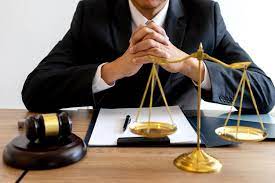Judging a lawyer's competence and suitability for your needs involves considering several key factors. Here's a guide on what to assess:
- Experience: Evaluate the lawyer's years of practice, especially in the relevant area of law. Experience often brings a deeper understanding of legal nuances.
- Expertise: Determine if the lawyer specializes in the area of law related to your case. Specialized knowledge can significantly impact the outcome.
- Reputation: Research the lawyer's reputation through reviews, testimonials, and references. A solid reputation can indicate reliability and credibility.
- Track Record: Inquire about the lawyer's success rate with cases similar to yours. Past performance can give you an idea of their effectiveness.
- Communication Skills: Effective communication is crucial. Assess how well the lawyer explains legal matters and how attentive they are to your concerns.
- Availability: A responsive lawyer is vital. Ensure they have time for your case and are accessible for updates or queries.
- Legal Strategy: Understand their approach to handling your case. A strategic and adaptable lawyer can tailor solutions to your unique situation.
- Ethical Standards: Verify their adherence to professional ethics. You can check with the local bar association for any complaints or disciplinary actions.
- Fees and Transparency: Discuss fees and billing practices upfront. A transparent lawyer will provide clear explanations of costs.
- Listening Skills: A lawyer who listens attentively understands your needs better and can tailor their approach accordingly.
- Compatibility: Assess if you feel comfortable discussing your case with the lawyer. Trust and rapport are essential for a successful partnership.
- Problem-Solving: Evaluate the lawyer's ability to analyze complex situations and develop creative solutions.
- Research Skills: Legal research is essential for building a strong case. A lawyer's research abilities can impact the quality of arguments.
- Negotiation Skills: If your case involves negotiation, a lawyer's negotiation skills can greatly influence settlement outcomes.
- Trial Experience: If your case might go to trial, inquire about the lawyer's trial experience and courtroom skills.
- Fee Structure: Discuss the fee structure and ensure it aligns with your budget and expectations.
Remember that choosing a lawyer is a personal decision. Take your time to gather information, ask questions, and trust your instincts when making your choice. It's crucial to select a lawyer who instills confidence and makes you feel well-supported throughout your legal journey.

